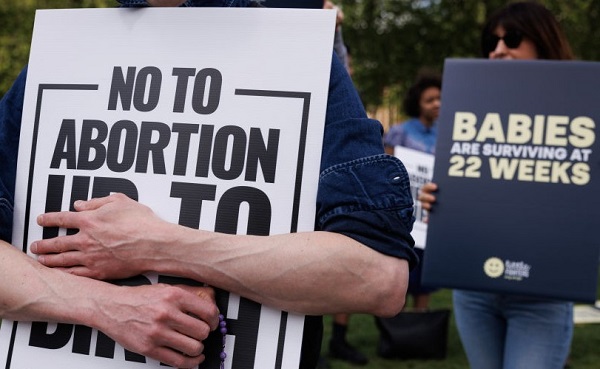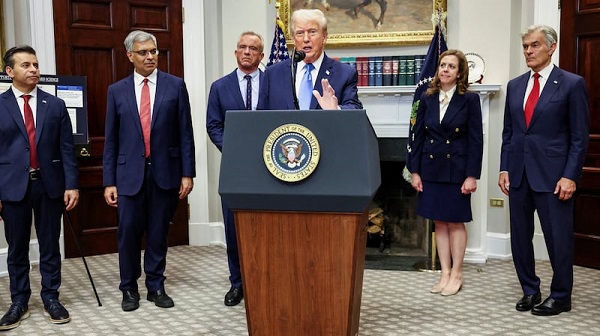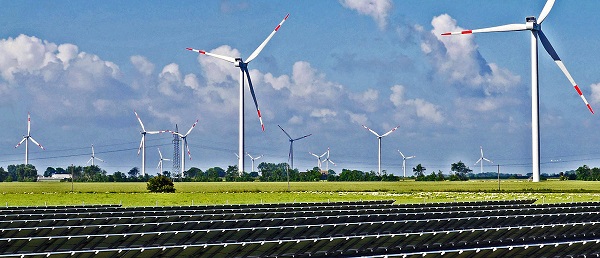Business
The carbon tax’s last stand – and what comes after

From Resource Works
How a clever idea lost its shine
For years, Canada’s political class sold us on the idea that carbon taxes were clever policy. Not just a tool to cut emissions, but a fair one – tax the polluters, then cycle the money back to regular folks, especially those with thinner wallets.
It wasn’t a perfect system. The focus-group-tested line embraced for years by the Trudeau Liberals made no sense at all: we’re taxing you so we can put more money back in your pocketbooks. What the hell? If you care so much about my taxes being low, just cut them already. Somehow, it took years and years of this line being repeated for its internal contradiction to become evident to all.
Yet, even many strategic conservative minds could see the thinking had internal logic. You could sell it at a town hall. As an editorial team member at an influential news organization when B.C. got its carbon tax in 2008, I bought into the concept too.
And now? That whole model has been thrown overboard, by the very parties had long defended it with a straight face and an arch tone. In both Ottawa and Victoria in 2025, progressive governments facing political survival abandoned the idea of climate policy as a matter of fairness, opting instead for tactical concessions meant to blunt the momentum of their foes.
The result: lower-income Canadians who had grown accustomed to carbon tax rebates as a dependable backstop are waking up to find the support gone. And higher earners? They just got a tidy little gift from the state.
The betrayal is worse in B.C.
This new chart from economist Ken Peacock tells the story. He shared it last week at the B.C. Chamber of Commerce annual gathering in Nanaimo.
 Ken-Peacock- B.C. Chamber of Commerce annual gathering in Nanaimo.
Ken-Peacock- B.C. Chamber of Commerce annual gathering in Nanaimo.
What is shows is that scrapping the carbon tax means the poor are poorer. The treasury is emptier.
What about the rich?
Yup, you guessed it: richer.
Scrubbing the B.C. consumer carbon tax leaves the lowest earning 20 percent of households $830 per year poorer, while the top one-fifth gain $959.
“Climate leader” British Columbia’s approach was supposed to be the gold standard: a revenue-neutral carbon tax, accepted by industry, supported by voters, and engineered to send the right price signal without growing the size of government.
That pact broke somewhere along the way.
Instead of returning the money, the provincial government slowly transformed the tax into a $2 billion annual cash cow. And when Mark Carney won the federal election, B.C. Premier David Eby, boxed in by his own pledge, scrapped the tax like a man dropping ballast from a sinking balloon. Gone. No replacement. No protections for those who need them most.
Filling the gas tank, on the other hand, is noticeably cheaper. Of course, if you can’t afford a car that might not be apparent.
Spare a thought for the climate activists who spent 15 years flogging this policy, only to watch it get tossed aside like a stack of briefing notes on a Friday afternoon.
Who could not conclude that the environmental left has been played. For a political movement that prides itself on idealism, it’s a brutal lesson in realpolitik: when power’s on the line, principles are negotiable.
But here’s the thing: maybe the carbon tax model deserved a rethink. Maybe it’s time for a grown-up look at what actually works
With B.C. now reviewing its CleanBC policies, here’s a basic question: what’s working, and what’s not?
A lot of emission reductions in this province didn’t come from government fiat. They were the result of business-led innovation: more efficient technology, cleaner fuels, and capital discipline.
That, plus a hefty dose of offshoring. We’ve pushed our industrial emissions onto other jurisdictions, then shipped the finished goods back without attaching any climate cost. This contradiction particularly helped to fuel the push to dump carbon pricing as a failed solution.
The progressives’ choice was made once the anti-tax arguments could no longer be refuted: to limit losses it would be necessary to deep six an unpopular strand of the overall carbon strategy. This, to save the rest. That’s why policies like the federal emissions cap haven’t also been abandoned.
To give another example, it’s also why British Columbia’s aviation sector is in a flap over the issue of sustainable aviation fuel. Despite years of aspirational policy, low emissions jet fuel blends remain more scarce than a long-haul cabin upgrade. The policy’s designers correctly anticipated that refiners would never be able to meet the imposed demand, and so as an alternative they provided a complex carbon credit trading scheme that will make the cost of flying more expensive. For those with a choice, nearby airport hubs in the United States where these policies do not apply will become an attractive alternative, while remote communities that have no choice in the matter will simply have to eat the cost. (Needless to say, if emissions reduction is your goal this policy isn’t needed anyways, since the decisions that matter in reducing global aviation emissions aren’t made in B.C. and never will be.)
I’m not showing up to bash those who have been genuinely trying to figure things out, and found themselves in a world of policy that is more complicated and unpredictable than they realized. Simply put, the chapter is closing on an era of energy policy naïveté.
The brutally honest action by Eby and Carney to eject carbon taxes for their own political survival could be read as a signal that it’s now okay to have an honest public conversation. Let’s insist on that. For years now, debate has been constrained in part by a particular form of linguistic tyranny, awash in terminology designed to cow the questioner into silence. “So you have an issue with clean policies, do you? What kind of dirty reprobate are you?” “Only a monster doesn’t want their aviation fuel to be sustainable.” Etc. Now is the moment to move on from that, and widen the field of discourse.
Ditching bad policy is also a signal that just maybe a better approach is to start by embracing a robust sense of the possibilities for energy to improve lives and empower all of the solutions needed for tomorrow’s problems. Because that’s the only way the conversation will ever get real.
Slogans, wildly aspirational goal setting and the habit of refusing to acknowledge how the world really works have been getting us nowhere. Petroleum products will continue to obey Yergin’s Law: oil always gets to market. China and India will grow their economies using reliable energy they can afford, having recently approved the construction of the most new coal power plants in a decade amid energy security concerns. Japan, which has practically worn itself out pleading for natural gas from Canada, isn’t waiting for the help of last-finishing nice guys to guarantee energy security: today, they are buying 8% of their LNG imports from the evil Putin regime.
Meanwhile, we’re in the worst of both worlds: our courageous carbon tax policy that was positioned as trailblazing not just for B.C. residents but for the world as a whole – climate leadership! – is gone, the poorest are puzzling over why things feel even more expensive, and nobody knows what comes next.
Business
Bill C-8 would allow minister to secretly cut off phone, Internet service

From the Canadian Constitution Foundation
“I worry that this law could be used to secretly cut off political dissidents from their phone or Internet service on the pretense that they may try to manipulate the telecom system”
The Canadian Constitution Foundation is concerned about the civil liberties implications of the Carney government’s proposed cyber security bill, C-8, which would allow the minister of industry to secretly order telecommunications service providers like Telus, Bell and Rogers to stop providing services to individual Canadians.
The minister would be allowed to make such an order if she has “reasonable grounds to believe that it is necessary to do so to secure the Canadian telecommunications system against any threat, including that of interference, manipulation, disruption or degradation.”
An individual who does not comply, including by failing to keep the order secret, could face fines of up to $25,000 for the first contravention and $50,000 for subsequent contraventions. Businesses could face fines of up to $10 million for the first contravention and up to $15 million for subsequent contraventions.
The orders would remain secret indefinitely, with the minister required only to present an annual report to Parliament on the number of orders made and her opinion on their necessity, reasonableness and utility.
CCF Counsel Josh Dehaas said that the power to cut off the Internet or cellphone service of Canadians is a “very serious power that requires very strong safeguards, which are presently lacking in the bill.”
“While this power may be necessary in some cases to prevent cyber attacks, it also poses serious risks to civil liberties,” Dehaas said. “I worry that this law could be used to secretly cut off political dissidents from their phone or Internet service on the pretense that they may try to manipulate the telecom system,” Dehaas explained. “Such an action would violate our most cherished freedoms including free speech.”
CCF Litigation Director Christine Van Geyn said that the government cannot be trusted with such a power unless proper safeguards are in place.
“You may think that the idea of the government cutting off political dissidents from the necessities of life sounds far-fetched, but that’s exactly what happened during the 2022 Freedom Convoy protests in Ottawa,” she said. “The federal government ordered banks to freeze hundreds of bank accounts without any judicial authorization, cutting protesters off from their money in the middle of a very cold winter.”
“Although the Federal Court agreed with the CCF that freezing bank accounts this way violated the constitutional right to be secure against unreasonable searches and seizures, that kind of damage isn’t easily repaired,” Van Geyn added.
Ottawa has appealed the Federal Court’s finding. The CCF is awaiting a decision from the Federal Court of Appeal.
Dehaas said that Parliament should consider requiring either judicial pre-authorization or an immediate, automatic judicial review of any decision to cut off an individual or business from their Internet or phone.
The CCF is also concerned that Bill C-8 would allow the minister to weaken telecommunications companies’ encryption standards, allowing for unconstitutional access to Canadians’ private information.
Finally, the CCF is concerned that the bill could allow the minister or any person designated by the minister to engage in unconstitutional searches.
Joanna Baron, the CCF’s Executive Director, said that Canadians must be vigilant about their constitutional rights and freedoms because they can be easily taken away, especially in times of crisis.
“I would encourage Canadians to fight for their freedoms, whether it’s by taking the CCF’s free privacy course, signing up for our weekly Freedom Update newsletter or becoming a monthly donor,” Baron said.
“Concerned Canadians are also encouraged to write to their MPs using our form letter, to tell them to amend these bills to ensure Canadians’ rights to privacy and free expression are protected,” Baron added.
Alberta
Taxpayers: Alberta must scrap its industrial carbon tax

-
Carney praises carbon taxes on world stage
-
Alberta must block Carney’s industrial carbon tax
The Canadian Taxpayers Federation is calling on the government of Alberta to completely scrap its provincial industrial carbon tax.
“It’s baffling that Alberta is still clinging to its industrial carbon tax even though Saskatchewan has declared itself to be a carbon tax-free zone,” said Kris Sims, CTF Alberta Director. “Prime Minister Mark Carney is cooking up his new industrial carbon tax in Ottawa and Alberta needs to fight that head on.
“Alberta having its own industrial carbon tax invites Carney to barge through our door with his punishing industrial carbon tax.”
On Sept. 16, the Alberta government announced some changes to Alberta’s industrial carbon tax, but the tax remains in effect.
On Friday night at the Global Progress Action Summitt held in London, England, Carney praised carbon taxes while speaking onstage with British Prime Minister Keir Starmer.
“The direct carbon tax which had become a divisive issue, it was a textbook good policy, but a divisive issue,” Carney said.
During the federal election, Carney promised to remove the more visible consumer carbon tax and change it into a bigger hidden industrial carbon tax. He also announced plans to create “border adjustment mechanisms” on imports from countries that do not have national carbon taxes, also known as carbon tax tariffs.
“Carney’s ‘textbook good policy’ comments about carbon taxes shows his government is still cooking up a new industrial carbon tax and it’s also planning on imposing carbon tax tariffs,” Sims said. “Alberta should stand with Saskatchewan and obliterate all carbon taxes in our province, otherwise we are opening the door for Ottawa to keep kicking us.”
-
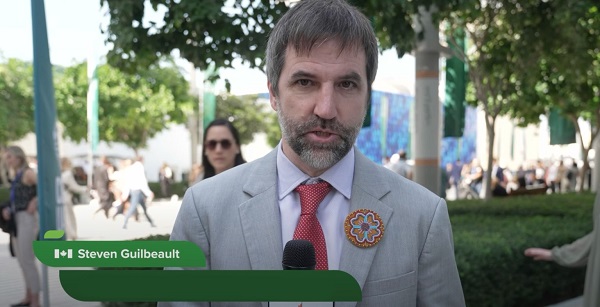
 Censorship Industrial Complex2 days ago
Censorship Industrial Complex2 days agoCanada To Revive Online Censorship Targeting “Harmful” Content, “Hate” Speech, and Deepfakes
-

 Alberta2 days ago
Alberta2 days agoAlberta refuses to take part in Canadian government’s gun buyback program
-
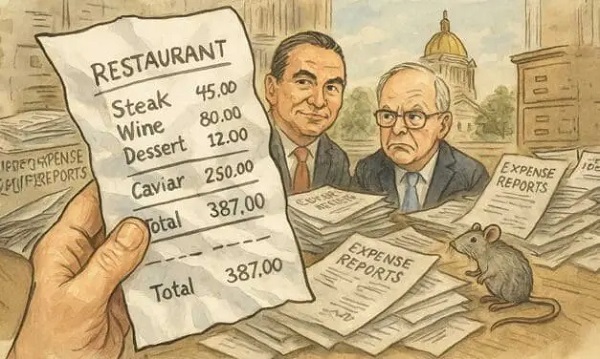
 Business1 day ago
Business1 day agoTaxpayers deserve proof of how politicians spend their money
-
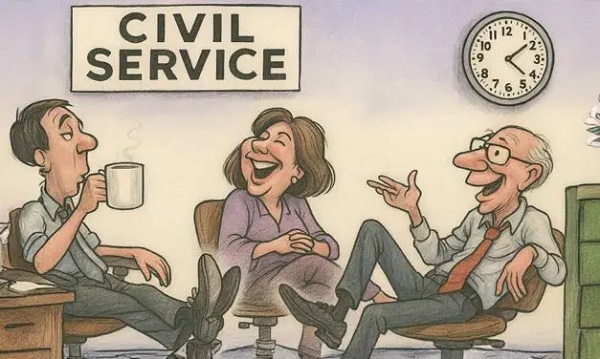
 Business1 day ago
Business1 day agoOttawa’s civil service needs a Chrétien-style reset
-

 Fraser Institute1 day ago
Fraser Institute1 day agoAboriginal rights now more constitutionally powerful than any Charter right
-
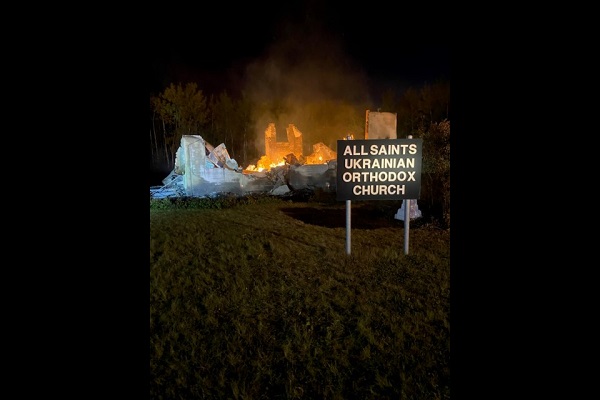
 Alberta2 days ago
Alberta2 days agoOrthodox church burns to the ground in another suspected arson in Alberta
-

 Alberta1 day ago
Alberta1 day ago$150 a week from the Province to help families with students 12 and under if teachers go on strike next week
-
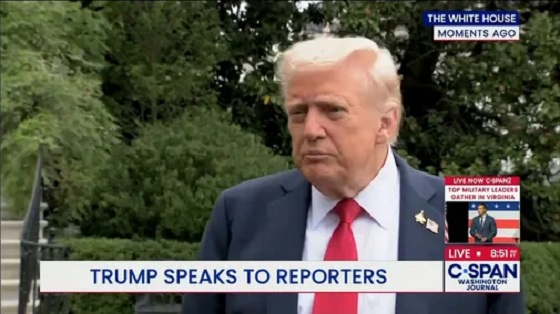
 International1 day ago
International1 day agoTrump gives Hamas four days to choose: peace or obliteration


